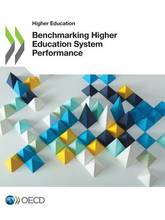The project on benchmarking higher education system performance presents a comprehensive and empirically rich review of the higher education (HE) landscape across OECD countries, monitoring how well they are performing in fulfilling their education, research and engagement objectives.
Among the main highlights of this publication are the following:
- HE provides graduates with favourable economic and social outcomes, but the low basic skills of some graduates is a cause for concern;
- HE spending per student is increasing rapidly, with households paying about one-fifth of the costs;
- Inequity of access by socio-economic and migration background is a persistent challenge;
- Only 4 in 10 Bachelor’s students are able to graduate on time, and 2 in 10 do not complete their studies at all;
- Young doctorate holders in HE employment find less job security than their predecessors and their peers in other sectors;
- HE research and development relies heavily upon public funding, and establishes limited collaboration with businesses on innovation, especially for small and medium enterprises;
- There is an increasing focus on engagement activities, but frameworks for measuring activities do not yet exist;
- Open access to scientific documents remains limited;
- Although quality is difficult to measure, governments are increasingly trying to link funding and other policies to the quality of teaching and research; and,
- Data limitations prevent comprehensive performance assessment of HE systems, but improvements in measurements are possible.

OECD iLibrary
